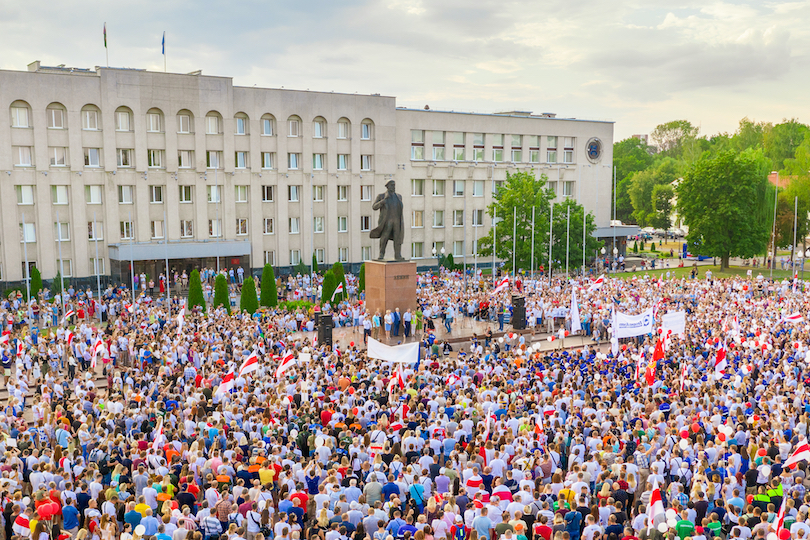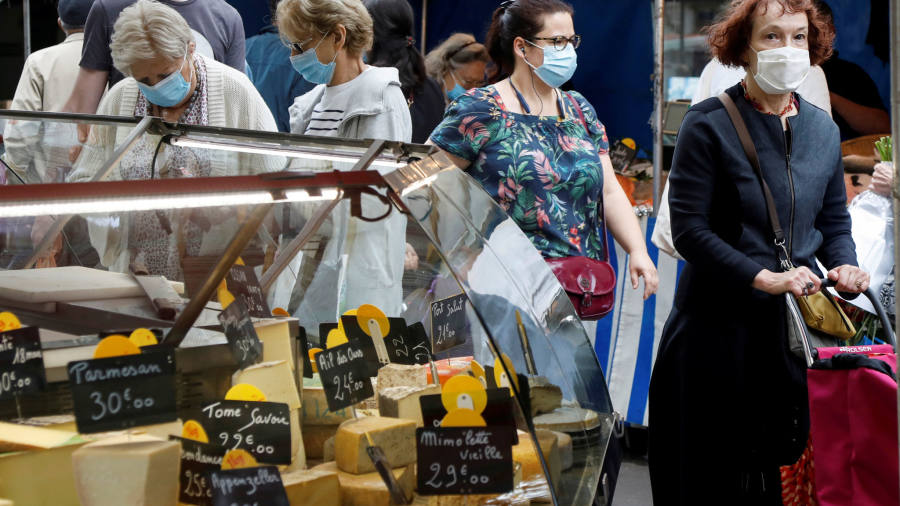This 12 months noticed Europe’s most authoritarian ruler grossly and repeatedly miscalculate. Belarusian chief Alexander Lukashenko, the nation’s ruler since 1994, has downplayed the coronavirus pandemic and has deepened long-held frustrations in regards to the nation’s political system and stagnating financial system. These occasions sparked an election marketing campaign that noticed overwhelming assist for his opponent Svyatlana Tsikhanouskaya, exposing Lukashenko’s political vulnerability, main the Belarussian President to patently falsify election results. Since then, the resilience of Lukashenko’s regime has been examined by a unprecedented wave of protests and employee strikes, which has swept throughout Belarus.
For a lot of the final 26 years, the European Union has considered Belarus a mere Russian satellite tv for pc, with a woeful report of political oppression and human proper abuses. Certainly, Belarus is probably the most ‘Russianised’ of the post-Soviet international locations, provided that 70% of Belarusians speak Russian at home, and Russian outlets occupy two-thirds of the Belarusian media space. Belarus can also be linked to Russia throughout 5 integration agreements, which permits Moscow to advance its financial and safety aims. To keep up his grip on energy, Lukashenko has systematically sought to exclude, intimidate and repress political opposition. The Belarussian chief has additionally used referenda to amend laws and even the constitution to increase his authority. These developments have meant that Belarus has lengthy remained on the margins of EU enlargement efforts.
This has not, nonetheless, prevented Lukashenko from skilfully and cyclically turning to Brussels, particularly throughout a downturn in relations with Moscow. The primary case emerged following the Russian-Georgian war of August 2008, during which Belarus joined the Eastern Partnership framework in 2009. As a part of this short-term shift in the direction of the EU, Lukashenko launched political prisoners and loosened his grip on the media and opposition, which led Brussels to elevate sanctions in opposition to Belarus. Nevertheless, relations rapidly deteriorated following Lukashenko’s crackdown on political opponents following the 2010 presidential election, which resulted within the return of particular person EU sanctions in opposition to 177 Belarusian nationals. For Lukashenko, the EU was not seen as an vital part of his overseas coverage, as he had efficiently reached an settlement with Dimitry Medvedev, who by then had short-term succeeded Vladimir Putin, on an excise-free provide of oil in alternate for Belarus signing agreements on a Customs Union with Russia and Kazakhstan.
This sample repeated itself in recent times, notably following Russia’s annexation of Crimea and its invasion of eastern Ukraine in 2014. The Belarusian President’s active facilitation of the Minsk peace talks and resolution to release most jailed opposition paved a strategy to a brand new chapter in relations with the EU. Emphasis was based mostly upon constructing dialogue and fostering financial ties. On this vein, an EU-Belarus coordination group was established to foster dialogue between each events spanning matters of mutual curiosity with respect to commerce, customs duties, agriculture and analysis. Human rights dialogue between Brussels and Minsk had additionally resumed during which a variety of points regarding the demise penalty, freedom of expression, meeting and affiliation, amongst others, have been mentioned. Belarus was additionally actively engaged with regional and sub-regional European organisations, notably holding the rotating presidency of the Central European Initiative in 2017. These developments raised eyebrows in Moscow, sparking Russia the next 12 months to relaunch talks with Lukashenko on finalising plans for deeper integration.
Regardless of the return of a constructive dynamic in EU-Belarussian relations, the opening of dialogue additionally demonstrated its limits. Engagement with the Lukashenko regime didn’t attest to any true progress being made on human rights, opposite to hopes and expectations fostered by the release of six political prisoners in 2015 and presidential elections held the identical 12 months below situations of restraint in the usage of violence. Lukashenko’s autocratic system of societal management and political energy remained intact, stopping any actual progress in democratic reforms. Regardless of all of the dialogue, growing the commerce quantity additionally proved challenging, as the idea of Belarussian exports to the EU comprised petroleum merchandise (produced from Russian crude oil), which have progressively decreased over time on account of persistent disputes with Moscow over future crude oil provides.
Thus, in mild of the current rigged presidential election and the brutal crackdown by riot police in the direction of demonstrators, has successfully made the prospect of future relations with Lukashenko untenable for officers in Brussels. With the Belarus protest motion now getting into its fifth week, all proof means that the regime can not return to enterprise as typical. To date, the EU has responded prudently to the continuing disaster by imposing economic sanctions only on senior Belarusian officials, whom they consider have been answerable for rigging final month’s presidential election and violent crackdown on opposition demonstrations. Though Lukashenko has been spared, this resolution drew condemnation from Moscow, prompting Putin to warn protesters and the West that Russia wouldn’t be afraid to deploy a special reserve force of security officers to revive order within the occasion of chaos in its western neighbour.
This, nonetheless, dangers creating one other anti-Russian hotbed on Russia’s doorstep. Belarus isn’t Ukraine 2014; the rebellion isn’t fuelled by the will to interrupt with Moscow by way of eventual membership in NATO and the EU. A violent and extended crackdown supported by Moscow would inevitably lead an more and more radicalised Belarusian inhabitants that views Russia as thwarting its need for a higher political voice. To Putin’s drawback, this would possibly deliver geopolitical elements into play which are at present absent from the talk in Belarusian society and due to this fact gasoline curiosity in becoming a member of the West.
At current the EU has few levers to instantly affect occasions in Belarus. With European leaders preoccupied by the rising resurgence of COVID-19 and fresh tensions between Greece and Turkey in the eastern Mediterranean, the EU can not afford to see the disaster unfolding in Belarus spiral uncontrolled. Forefront of European issues is to keep away from a repeat of its failed mediation makes an attempt of February 2014 relating to the Ukrainian disaster, during which Russia was not concerned at a excessive degree in discussions, which consequently undermined the entire course of and subsequently led to the deepest East-West disaster because the Chilly Warfare. Europeans have due to this fact urged Putin to push for dialogue, however has up to now declined.
European officers shouldn’t be discouraged by the Kremlin chief’s line. The German authorities may ramp up financial stress on Moscow by threatening to fully withdraw Germany’s involvement in Russia’s Nord Stream 2 gas pipeline project, which might positively get the Kremlin chief’s consideration. Abandoning the venture would injury Putin’s newest effort to strengthen Russia’s vitality stronghold on Europe and stop the Kremlin chief receiving a major monetary enhance. On condition that relations between Berlin and Moscow have been strained in current weeks by the poisoning of Russian opposition politician Alexei Navalny with Novichok, a chemical nerve agent, it’s due to this fact not in Putin’s pursuits to additional pressure relations with Europe -–thus engagement with the EU on the scenario in Belarus can be a constructive step in therapeutic current tensions.
On this spirit, the EU ought to stress to Putin the significance of latest elections below the supervision of the Organisation for Safety and Co-operation in Europe and the dispatch of an neutral impartial professional to forestall future abuses on the streets. Europeans don’t have anything to lose in adopting this overseas coverage place.











